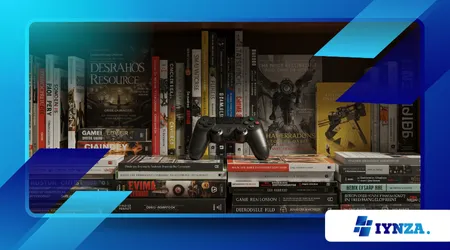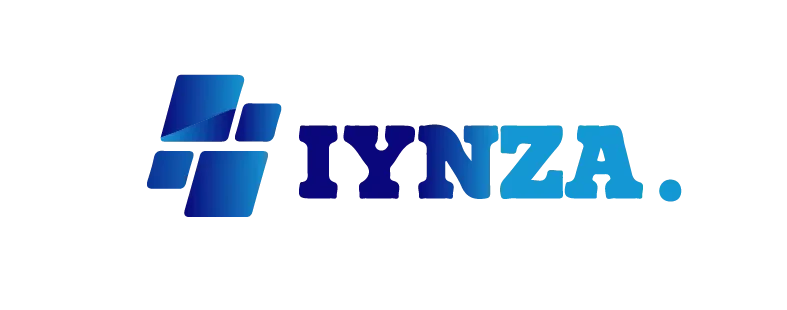The Best Free Resources to Learn Game Development

The best free resources to learn game development are not hidden behind expensive paywalls or locked in exclusive communities.
Anúncios
They’re out there — accessible, practical, and more powerful than many people realize. And in 2025, with technology evolving fast and tools becoming more open, the path into game development has never been more available.
What used to take years of formal education and costly software now starts with a YouTube video, an open-source engine, and a bit of curiosity.
Whether you want to build your first indie game or prepare for a professional role, what matters most isn’t what you can afford. It’s what you commit to learning.
You don’t need a degree to get started. You need consistency, the right guidance, and a roadmap that makes sense. And that’s exactly what the free resources in this guide are here to give you.
Why Free Learning Matters More Than Ever
The game industry moves fast. Tools change. Engines evolve. Studios hire based on portfolios, not diplomas. That means real-world skills matter more than formal education.
Free learning opens the door to experimentation. You can try different engines, mess with code, and explore art tools without pressure. You’re not losing money if a course doesn’t click or a tutorial leads nowhere. That freedom helps you find your path.
And beyond saving money, free resources give you global access. No matter where you live, you can learn from the same tools used by developers worldwide. That levels the playing field.
YouTube Channels That Actually Teach
YouTube is full of game dev content. But not all of it is helpful. Some creators talk too much. Others skip steps. But a few get it just right — clear, structured, and beginner-friendly.
Brackeys was one of the best. Although inactive now, his videos still teach Unity basics better than most paid courses. From setting up your first scene to creating player movement and UI, his tutorials remain gold.
Game Dev TV provides short lessons with clear examples. And creators like Code Monkey, Blackthornprod, and GDQuest balance programming with design, showing you how to build games that don’t just work — they feel right.
The best way to use YouTube? Pick one engine, follow one creator, and build along with the video. Don’t just watch. Type the code. Break it. Fix it. That’s how you learn.
Free Game Engines That Power Real Games
The engine you choose shapes your experience. And luckily, the top engines are free to use.
Unity is ideal for 2D and 3D projects. It has a massive community and thousands of tutorials. You can build mobile games, desktop games, or VR experiences all in one place.
Unreal Engine is great for high-end 3D visuals. It uses Blueprints, a visual scripting system that lets you create without deep coding. It’s used in big games, but also by indies. And it’s completely free until your game earns serious revenue.
Godot is rising fast. It’s lightweight, open source, and perfect for small to mid-size projects. Its script, GDScript, is similar to Python and easy to learn. Plus, the Godot community is passionate, helpful, and constantly growing.
The key isn’t picking the “best” engine. It’s picking one and sticking with it long enough to build something. Free doesn’t mean low-quality. These engines power real games on real platforms.
Read also: Cloud Gaming vs. Traditional Gaming: Which One is Better?
Community Platforms That Support Your Journey
Learning alone is hard. Forums, Discord groups, and open communities change that. They connect you with others going through the same process.
Reddit has active communities like r/gamedev and r/IndieDev, where you can ask questions, share progress, and get feedback. People are surprisingly helpful — especially if you show that you’ve put effort in first.
Itch.io isn’t just for uploading games. It’s also a hub for game jams. These events challenge you to build a full game in a few days. You learn fast, meet people, and grow your portfolio.
Discord servers like Game Dev League or Unity Developer Community offer instant advice. You can share screenshots, debug code, or just hang out with other creators.
And don’t forget GitHub. Many open-source projects let you explore real codebases, contribute, and learn how teams build games from the ground up.
Interactive Courses That Actually Deliver
Some free courses offer more than just reading material. They give you exercises, checkpoints, and projects. That structure keeps you on track.
CS50’s Introduction to Game Development, from Harvard, is a standout. It’s fully free, on edX, and uses tools like Unity, Lua, and C. It’s academic, but practical. And it pushes you to build.
Unity Learn is Unity’s own platform with tutorials for all levels. Many courses are free and come with downloadable assets. You get to build real mechanics — not just toy examples.
FreeCodeCamp has game dev paths with JavaScript and web-based tools. It’s a great option if you’re curious about browser games.
And platforms like Coursera and edX often host free audit options — no certificate, but full access to content. That’s more than enough to learn.
Game Art and Sound Resources That Cost Nothing
Development isn’t just code. You need visuals. You need audio. And thankfully, you don’t need to be an artist or musician to start.
Kenney.nl is a treasure trove. It offers thousands of 2D and 3D assets — tiles, sprites, icons, UI elements. All free to use in personal and commercial projects.
OpenGameArt.org has a wide range of community-contributed assets. Quality varies, but you’ll find gems. And even rough assets help you test ideas before investing in polish.
For sound, Freesound.org has effects for every genre. And Sonniss releases a huge sound effects library every year during GDC — free, royalty-free, and high quality.
You don’t need perfect art to learn. You need placeholders. These resources give you just that — visuals and sounds to fill your world while you build its logic.
Game Jams: Fast-Track Your Growth
Game jams teach you fast. You face real constraints — time, theme, tools — and you have to finish. No endless tweaking. No second-guessing.
Events like Ludum Dare, Global Game Jam, and GMTK Game Jam attract thousands of devs. Beginners join all the time.
After a jam, you walk away with a finished project. You get feedback. You see how others solved the same problem. And you build confidence.
If you do one thing this year to boost your game dev skills, join a jam. It’s the ultimate crash course.
Building a Learning Path That Works for You
There’s no single “correct” order to learn game development. Some people start with art. Others start with logic. Some dive into engines. Others start with books.
What matters is building a path you’ll stick to. That usually means:
- Pick an engine.
- Follow a beginner tutorial series.
- Build something simple.
- Join a community.
- Repeat.
Don’t jump between engines. Don’t hoard tutorials without watching. Build more than you consume. It’s tempting to plan forever. But progress comes from doing.
Questions About Free Game Development Resources
Can I really learn game development without spending money?
Yes. With consistent effort, you can master engines, scripting, and design using only free tools and platforms.
Is YouTube enough to become a developer?
It’s a strong start. But combine it with hands-on practice, projects, and community interaction for better results.
Which engine is best for beginners?
Unity and Godot are both great. Unity has more content. Godot is lighter and simpler. Pick one and commit.
Do I need to learn programming to make games?
Eventually, yes. But many engines offer visual scripting to help you get started. Coding gives you control.
How long does it take to learn game development?
It depends on your time and consistency. In 6–12 months, you can build and publish small games confidently.
